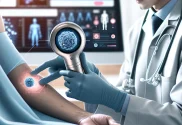Cybercrime is on the rise, and healthcare is becoming a primary target as per recent news. What is accounted as cybercrime at a medical practice? Anything from a hacker stealing protected health information for medical identity theft to a staff member viewing patient records without prior authorization. You’ll need healthcare cybersecurity tips to help protect your data.
It was becoming increasingly challenging to protect PHI, (protected health information — PHI is under the HIPAA laws).
Hackers are displaying ingenuity with every data breach and often a time the practice staff turns out to be the root cause. Either they weren’t careful or willingly allowed someone to access practice data. To curb cybercrime and other security threats to the centralized database, there are nationwide legislations like HITECH (Health Information Technology for Economic and Clinical Health Act) and HIPAA (Health Insurance Portability and Accountability Act).
These acts (laws) promote the efficient implementation of technology for caregivers. The primary focus of these acts is the security and privacy of EHRs. The severity of the crime determines the fine you pay. If someone has unknowingly broken the law, they pay a low fine and also have a month to rectify the offense in which case no penalty is taken from them.
Other laws like the False Claims Act and perpetrators of the Stark Law (patient referrals to friends and family, except in exceptional circumstances) also deal with impersonators who steal identities for insurance claims. Any data breach has consequences. It can cost a practice hefty fines under HIPAA and HITECH, but more importantly, it puts a practice’s or hospital’s reputation at stake.
Patients also need to know their privacy is protected, and it will cost practice patients if there is a data breach. Since the patient’s records, audits, and doctor’s information are stored in a centralized database, a small breach can have significant consequences. Similarly, there are a lot of encrypted security standards that make an EHR secure.
If a vendor does not comply with industry standards, it is best to switch to a more secure EHR and Billing Provider. Patients and practice continuity are both vulnerable if precautions and necessary steps are not taken to protect data by practitioners. Leave no stone unturned for your own protection and reputation.
Here’s what can be done by a certain practice to avoid lawsuit/security breach:
-
Taking Responsibility > Change Passwords Repeatedly:
It is recommended that the medical practice should change their passwords intermittently. It may also help to keep a different password to access various applications. However, it is cumbersome to remember different passwords; it would be wise to subscribe to a secure password manager app or use devices and applications with single sign-on capabilities.
It is essential to have secure passwords to access online records. Practice managers and even staff computers should have hard-to-crack passwords. Your work devices can have details about patients’ histories, prescription, and medical billing. Health IT professionals have recommended it.
-
Controlled Accessibility and Audit Logs
Role-Based Accessibility: An advised tactic is for all practice managers, physicians, and influential persons in the practice should have their own passwords and usernames to access EHRs and other electronic devices.
- First: everyone will only be able to see information relevant to them.
- Second: it will reduce the times a staff member is likely to share a password. Residents use their co-worker’s passwords around four times as per research cited by Kevin McCarthy on his blog “The Importance of Password Security in Your Medical Practice.”
- Another way: to reduce password-sharing is to use audit logs on all EHR devices. Logs make it very easy to track edits, reviews, and views by all users. It can also be used to track tasks, and time spent working on the system for added measure.
- Tracking time: and date spent on a certain system will increase employee efficiency, and ensure practice productivity. All medical devices, including mHealth, should use encryption.
-
Staff Training and Education:
Sometimes staff can misuse work computers or other devices without knowledge. Misuse happens when they surf the web and accidentally click on a link that becomes the gateway. Negligence is one of the most common causes of security breaches. However, with repeated user training, and this can be curbed.
To further instill employee vigilance, higher management must score staff on security, which should have an impact on yearly evaluations. These evaluations will make them aware of their work habits, and also keep an eye out for an unauthorized user who wants access to data.
Teach all staff members not to leave any identifying information should never be left in the open; whether it is on a post-it, or on a screen. Any visual would include a family name, first name, an address, and contact details. Though this information itself is not sufficient to hack or invade private data, it is a small outlet of information that may be used against the practice.
Consistent staff training will enable vigilance in the practice, and keep all information out of reach of every visitor. Patients, lab staff, cleaners, pharmaceutical reps, come and go, and their whereabouts are not always monitored. The staff enables the smooth running of a practice, and are likely to ensure that all security protocols are in place.
Your staff is also the most authentic sources when it comes to reporting activities and day-to-day operations. It is best to invest in their training and educating them about security breaches so they can take care of the practice.
-
Accessibility Restrictions
To ensure security, network restrictions should be enforced along with limited web browsing. The use of restrictions is highly recommended for all workplaces that house sensitive information. This reduces malpractice and keeps staff focused on their jobs. A practice must restrict usage and bring of personal devices which transmit data to strengthen security further.
Staff might feel disconnected from social media at work and be tempted to use social media platforms. However, using social media increases the probability of clicking on the unknown link, or general personal browsing can invite a virus attack and potential hacking.
The moment you give an app or web browser access to your computer, you are putting the device at risk. Restricting these activities, and only allowing approved applications such as your PM software, EHR, and billing and accounting software. Ensure practice policies are followed through accountability.
Restricting unknown websites or entertainment pages are going to make your online systems more secure. Staff should be allowed to use these on their mobile phones in breaks. USBs are known to facilitate data theft. Make sure no unknown device is connected to any system.
-
Cloud Technology is Your Friend
Cloud technology maintains a backup of all your practice data and applications. Cloud services give full security to practices of all sizes. It can be backed up daily or weekly. Regular updates ensure that your data will be kept safe even if there is a security breach or if your device breakdowns.
Some practice managers keep all data safe and secure on a USB drive, which is then kept in a safe off-site. While that is practical, cloud servers also allow for all updated data to be kept safe and off-site. It is not only on your system but also stored in another encrypted storage space.
The only drawback of cloud computing is that your information is also stored in a system out of reach. Vetting the security of cloud computing becomes incumbent. Update all data with cloud. Many modern healthcare management systems now include archival data solutions, with updated records stored in the cloud. Get more advice about features like these by either talking to a consultant, or an IT professional within the practice.
-
Update and Delete
Once you have secured your data, and it is safe, don’t hesitate to delete old data. Make sure this is backed up before removing it because it can come in handy as well. Keeping all medical devices up to date and patched will minimize vulnerabilities. Try not to use outdated browsers and other software.
Internet Explorer is found on many devices even though Microsoft does not authorize it. Upgrade those devices that do not allow for the latest updates. Do not throw out old devices if they are not devoid of information even if data encryption is in place. Safely dispose of all medical devices.
Remove, disable, and disconnect unnecessary accounts, or accounts no longer in use, so former employees, staff members, and other personnel cannot misuse their accounts. Get rid of unnecessary software and browsers that are no longer needed. PDF converters, readers, and search engines that require additional downloads are most likely to infiltrate your system with viruses and malware.
Plan ahead when you are updating, deleting, and upgrading systems. Upgrades (hardware and software) cost money, and practice needs to see the most viable options keeping security as the acme. Restore back-ups when required and only update data which is necessary. Restoring a backup will reduce the time taken for a system to update and restore backed up data.
-
Get a Proficient Security Provider
Small practices can perform risk analysis with more ease than an extensive practice while being cost-effective. Enhancing cybersecurity prevents data loss, and oversees the safe-keeping of the whole practice and not just the EHR system. Identifying gaps, addressing vulnerabilities, viruses, and malware are mitigated with regular checks reducing disruptions in practice management. Do not turn off any software updates.
Install any firewall software to secure practice network. Securing the network is the easiest way to waive internal and external threats. The better the firewall, the safer the data. Upgrade to a recent security wall, preferably one with the manufacturer or commercial-grade updates.
-
Hire a Professional
Technology can be daunting and cumbersome. If a practice can afford a security consultant who can train staff as well, that’s fortunate. If not, hire someone who has specialized IT skills who can take charge of the practice’s security. Give your new practice employee the task to oversee government-regulated compliance documents.
The research industry trends and ensures operating systems updates. If they can do all this, they can surely ensure all medical devices are also patched and address potential threats to the practice’s security. Make sure they know how to encrypt all data and can follow encryption procedures with ease.
Hiring a data security expert can give annual updates on how the practice is secure, and oversee security threat and HIPAA compliance. If a practice complies with all regulations enforced by their state, the data is very secure. However, as a precaution, it is safer if the practice also takes matters in their own hands.
Periodical risk assessments, engaging with changing government laws and regulations, and regular practice audits are also necessary for encumbering security breaches/threats.
Medical practices and healthcare organizations are easy targets for knowing the demographics, finances, and other sensitive information. Cybercriminals and white-collar criminals target healthcare organizations and practices knowing that there is an easier target.
It is pivotal for a practice to ensure that they are protected against growing threats or vulnerabilities in their system. Therefore it is in the best interest of doctors, nurses, and other stakeholders to ensure multilayered and complex security that is hard to violate easily.
It is against the law for patient data to be stored unencrypted. Industry-standard encryption codes are employed; such as HL7, ICD10, LOINC, CPT4, ANSIX12. These ensure secure interoperability and keep the patients’ data private and secure. Health data is susceptible to risk.
It is also quite challenging to protect health data because of its demands. Governments have made it mandatory to ensure HIPAA and HL7 compliance, but that is not all. A practice needs to take responsibility for data protection. There are guidelines on how practices can protect their data, and strict measures like hefty fines and security requirements have been placed as a regulatory system for all to follow.




